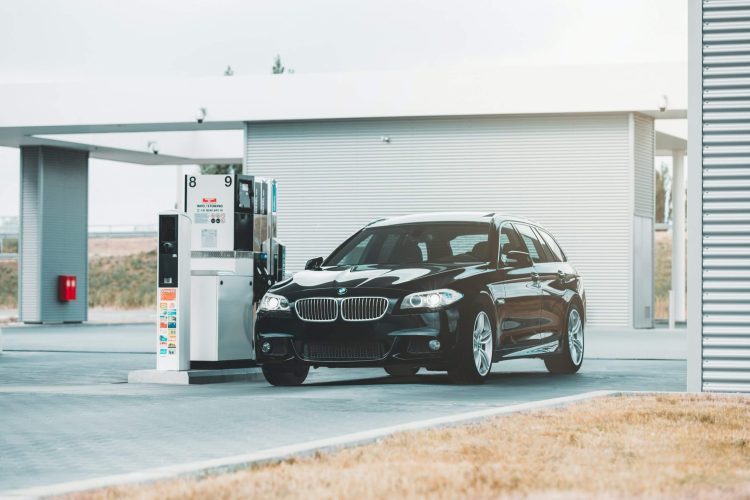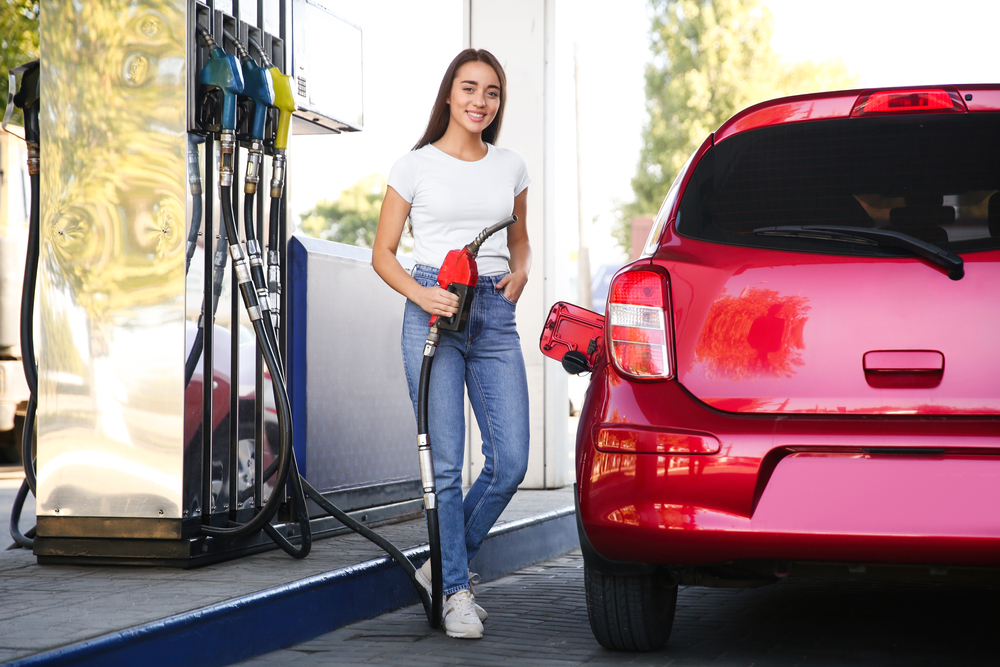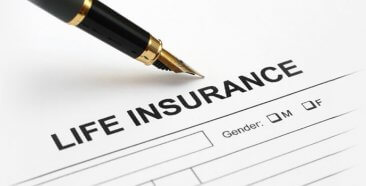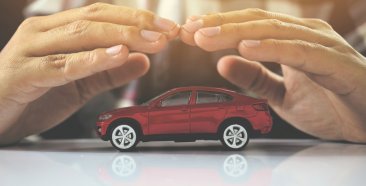
You pull into the gas station, pop your gas tank cover, fill up your tank, and wince as the numbers race higher and higher. We’ve all been there. Fuel is a necessity that can get very expensive. That’s why we’ve collected 6 of the best ways to get the most out of a tank of gas.
What You Need to Know
Fuel economy (also known as gas mileage) refers to the number of miles a car can travel using a specific amount of fuel and is measured in miles per gallon. For example, if your vehicle gets 30 mpg, it travels 30 miles per one gallon of gas.
Speaking of which, you may be wondering what is considered “good” gas mileage these days. To pull from our example above, 30mpg is a solid fuel economy on an average, non-hybrid, non-electric vehicle. Diesel engines will get better gas mileage ― 20 to 30% ― because they are more fuel-efficient and have more low-end torque than similar-sized gasoline engines. The average mileage per tank of gas for a diesel is 50 mpg.
A hybrid engine (like in a Toyota Prius) will get 50 to 60 average mpg while electric cars (like the Chevrolet Bolt EV or Hyundai Ioniq Electric) get average mpg in 3-digits (119 mpg and 136 mpg, respectively). Electric vehicles have a lot going for them as far as saving you some cash at the pump, but they are still relatively expensive and charging up while on the road can be a hassle. However, charging stations for electric vehicles are becoming more and more common.
How Many Gallons of Gas is One Tank?
Smaller cars may have tanks that hold on average 12 gallons of gas, while larger ones can hold around 16 gallons of gas and large trucks and SUVs can hold up to 40. Of course, the size of the tank determines how many gallons of gas you can purchase.
Take these steps to find out the number of gallons your vehicle uses per mile, find your tank capacity in your owner’s manual. Start with a full tank of gas. While checking to see how much money you owe, take note of how many gallons you bought. Set your trip odometer. Drive until your gas light comes on.
To find the number of gallons per mile, divide your total number of miles by the number of gallons you purchased. Most people are happy to find ways to save money on their gas purchases.
What Factors Influence Average Mileage Per Tank of Gas?
Aside from engine type, the factors that determine the fuel efficiency of your car are many and varied. Here are just a few.
- Type of vehicle: You’d expect that smaller cars would get better fuel economy than, say, a truck – and you’d be right. The average weight of a truck is between 4,000 and 7,000 pounds. The average weight of smaller cars is between 2,600 and 3,000 pounds. Of course, how light – or heavy – a vehicle is has a lot to do with their gas usage. And not only does a light automobile get better economy, they put less stress on the engine.
- City driving vs highway driving: Highway driving will give you a better mpg than city driving. Drivers who keep a constant speed get more mileage than drivers with multiple stops and starts in city traffic.
- Road conditions: If your regular commute takes you over some rough roads, be prepared to sacrifice some fuel efficiency. Because rough road conditions ask your automobile to work harder, you burn more gas.
- Maintenance: People who take the proper steps to regularly maintain their rides will feel less pain at the pump. And at the repair shop. Besides following your owner’s manual recommended maintenance schedule, one important step is air filters. Your air filter has a direct effect on how well your engine runs. If your engine is not running well, it will have a negative effect on your gas mileage. It hardly bears mentioning that regular oil changes are also important. Dirty oil will have a negative effect on fuel range and cause you to get less average mileage per tank of gas.
We’ve talked about some of the factors that can influence how your vehicle uses fuel. Here are 6 more tips that can help you beat the pain at the pump.

1. Drive Sensibly
Rapidly accelerating, speeding, and braking quickly are all characteristics of aggressive driving, which can actually lower your gas mileage by roughly 15 to 30% at highway speeds and 10 to 40% in stop-and-go traffic, according to a study by researchers at the U.S. Department of Energy Oak Ridge National Laboratory. By driving more sensibly, you can save up to $1 per gallon.
If you need some help on this one, try out this 30-day safe driving challenge guide.
2. Slow Down
In a test performed by Consumer Reports, they found that the fuel economy dropped 4 to 8 mpg while speeding up from 55 to 65. Increasing the speed to 75 cut fuel efficiency by an additional 5 to 7 mpg.
Once you reach 50 mph, each additional 5 mph you drive is like paying another $0.18 per gallon for gas. Not only will driving within speed limits save you money on gas, but it’ll also save money on potential speeding tickets and, most importantly, keep you and other drives safer.
One way to do this and save some gas is with cruise control. Many people find it helps keep their acceleration steady and less wasteful.
3. Lighten Your Load
Excess weight in your car and even hauling items on your roof can decrease your vehicle’s fuel economy and give you less average mileage per tank of gas. If that extra weight is in something like a rooftop cargo box, you could be making things even worse because these boxy objects increase aerodynamic drag (wind resistance) and lower fuel efficiency. At highway speeds, more than 50% of engine power goes to overcoming aerodynamic drag. If you need to haul some cargo, see if you can install it to the back of your vehicle instead of the top.
4. Turn Your Vehicle Off
This tip can not only help you save money on fuel, but it can also help save the environment too. Idling (running a vehicle’s engine when it’s not in motion) excessively can waste gas more than you’d think ― a quarter to a half-gallon of fuel per hour, depending on your engine size and air conditioner use.
A myth related to this is that it wastes more gas turning your car back on than just letting it idle. This is false! It only takes about 10 seconds worth of fuel to restart your vehicle, according to fueleconomy.gov.
As for the environmental side, idle reduction is a simple way to use less fuel and minimize engine wear, reducing costs along with pollution and greenhouse gas emissions.
Refraining from idling also goes for the cooler months when many people start their cars in order to warm them up. Not only is it better for your gas tank and the environment, it doesn’t actually work that well. Engines warm up faster in movement, which allows the heat to turn on sooner, decrease your fuel costs, and reduce emissions. Modern auto manufacturers recommend driving off gently after about 30 seconds.
5. Turn Off the A/C
Though this tip is harder to do in hotter months, the fact is the harder the air conditioning system has to work, the worse the impact on fuel economy. You can expect a drop from 1 to 4 mpg with the air conditioning running. It’s advised to roll the windows down at lower speeds and to go ahead and use the AC at highway speeds.
6. Keep Your Tires Properly Inflated
In a test done by Consumer Reports, they found that when the tires were underinflated by 10 psi, a midsize sedan lost 1.3 mpg on the highway. Some believe that overinflating tires increases fuel economy. However, overinflating tires poses safety risks and can wear down your tires faster. That’s why you should always follow the proper tire pressure for your vehicle, which is usually found on a sticker in the driver’s side door jamb or the glove box and your owner’s manual. Properly inflated tires are safer and last longer.
Find Affordable Car Insurance Online Today
The best way to save money on gas is to follow these tips. The best way to save money on car insurance is to get a free quote from Freeway Insurance. Freeway Insurance can help you shop for the best auto insurance you can get at a price you can afford. Call (800) 777-5620 today to speak to a live agent.



